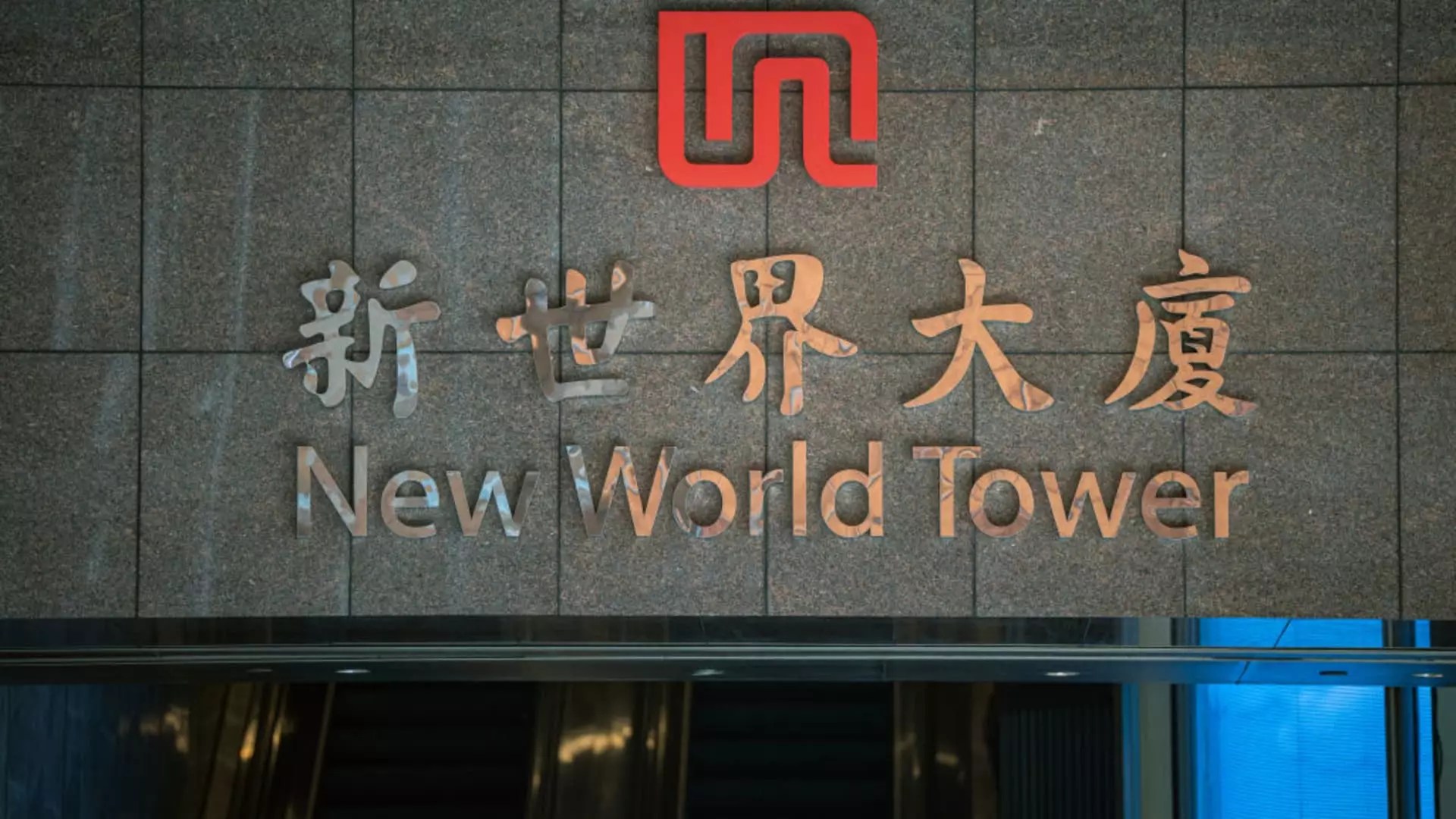The recent resignation of Adrian Cheng, a prominent figure in Hong Kong’s New World Development, significantly influenced the company’s market performance. Following the announcement, shares surged by an astounding 23% when trading resumed on Friday after a brief halt. The company cited the need to pause trading to unveil major announcements related to Cheng’s departure and his intention to focus on public service and personal commitments. This unexpected announcement could signal shifting dynamics within the company’s leadership and may have profound implications for its strategic direction.
In a rare move for a family-affiliated corporation, New World Development appointed Eric Ma Siu-Cheung, previously the Chief Operating Officer, as the new CEO. This transition from a founding family member to an outsider in an executive role raises questions about the future governance of the company. Such leadership changes are relatively uncommon in Hong Kong’s family-run enterprises, often dominated by patriarchal structures. The new leadership could provide an opportunity for fresh insights and innovative strategies, particularly as the company grapples with pressing financial challenges.
In its most recent financial filing, New World Development reported anticipated losses attributed to shareholders ranging from HK $19 billion ($2.4 billion) to HK $20 billion ($2.6 billion) for the fiscal year ending in June. The company faced significant headwinds, including declining sales and impairments amid a broader downturn plaguing the Hong Kong real estate market. Furthermore, beyond the immediate financial losses, the company’s elevated debt levels suggest a precarious position that could necessitate strategic reevaluation.
In light of the recent changes, experts have pointed to the importance of corporate governance within family-owned firms. Alicia Garcia-Herrero, the chief economist for Asia Pacific at Natixis, emphasized that reliance on family dynasties might not be sustainable in times of economic turbulence. She argued for the necessity of solid management structures to navigate complex market conditions, positing that companies would perform better with capable leadership, regardless of familial ties. This perspective highlights a potential shift in business practices among Hong Kong’s elite as they come to terms with the challenges presented by unfavorable market circumstances.
The surge in New World Development’s stock is also reflective of wider trends within the Hong Kong and mainland Chinese markets, which are responding to recent fiscal stimulus measures introduced by the Chinese central bank. Investors appear optimistic, buoyed by a renewed governmental focus on stabilizing the real estate sector and fostering economic recovery. Leaders in China have been vocal about the need to enhance fiscal policies and support various sectors, suggesting a concerted effort to mitigate economic decline and restore confidence among investors.
As New World Development transitions through this critical juncture, it remains imperative for the company to adopt an adaptable and forward-thinking approach amidst financial hurdles and shifts in governance. The interplay between market dynamics, corporate governance, and governmental response will significantly shape the firm’s trajectory as it seeks to regain stability in a challenging economic environment. The resignation of a key leader could serve as a catalyst for change, prompting a reevaluation of strategies to enhance resilience and ensure long-term growth in the face of adversity.


Leave a Reply